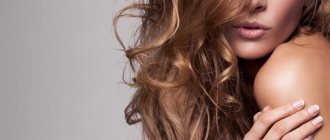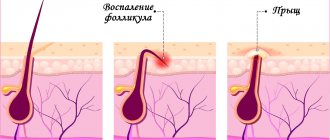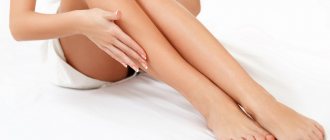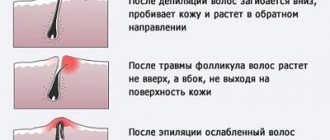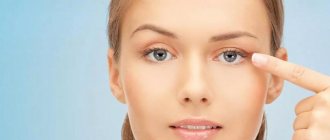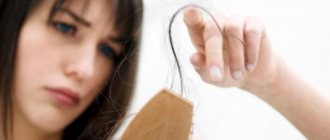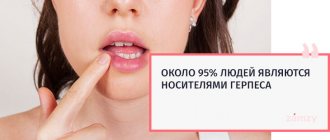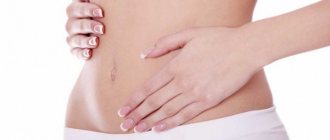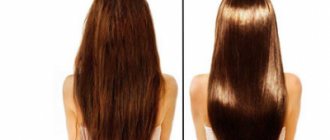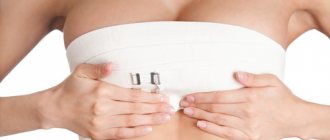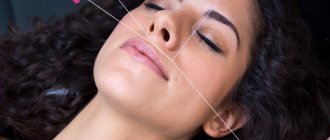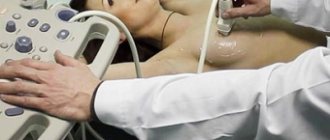It's all about the harmony of soul and body: 7 reasons for hair loss
The causes of hair loss after childbirth are physiological changes:
Most often, physiological factors are behind hair loss, in particular the woman’s stressful state due to physical and psychological stress after childbirth.
- Postpartum phenomenon . Pregnant women indicate an improvement in hair condition due to changes in hormonal balance. They become thicker due to the activity of “dormant” follicles, which have moved from vellus to hair follicles. Old hair follicles that are dormant at the time of pregnancy do not fall out. An excess of them is formed. The completion of the gestation stage is accompanied by the restoration of the woman’s hormonal balance, accompanied by getting rid of excess hair. The process begins 3 months after birth. Hair stops falling out when a woman’s hormonal levels are normalized (by 12 months) or with the end of lactation. It is impossible to influence a natural phenomenon. It will end spontaneously.
- After operation . Surgery using anesthesia, which is a caesarean section, can lead to prolapse. In this case, it is easy to maintain hair with the help of procedures or complex treatment as recommended by a doctor. Read more about proper nutrition after a caesarean section here.
- Lack of vitamins and minerals . A woman's diet is limited due to the formation of the child's digestive system. There is a lack of necessary biologically active substances for the mother’s body, which is manifested by hair loss after childbirth during breastfeeding. Additional vitamins for nursing mothers and adjustments to the diet will solve all problems.
- Stressful state . The female body is in a stressful state due to physical and psychological stress (disturbance in sleep-wake patterns, painful sensations, worries about the condition of the newborn). Doctors have noted that the cause of hair loss is any stress. In this case, adjusting the daily routine (trying to get enough rest) and vitamin complexes can help the mother.
- Endocrine disorders . More serious causes include endocrine disorders: thyroid disease or polycystic ovary syndrome. When diagnosing these diseases, their drug treatment will help.
- Poor blood circulation in the scalp . A feeling of numbness or pins and needles on the head are signs of poor circulation, leading to a lack of nutrition to the follicles. Poor circulation is associated with anemia, low hemoglobin or tight weaving.
- Genetic traits . Severe hair loss after childbirth can be a manifestation of hereditary baldness - alopecia. If this trait is present in the family, it may appear during the lactation period. It is impossible to stop this process with home remedies. Drug treatment is prescribed by specialists - trichologists.
Features of hair care during the postpartum period
To help your body restore the appearance of your hair, you should follow a few simple rules:
- There should be enough rest in your life. Of course, a mother who, in the first months after the birth of her baby, can get a full night’s sleep for 8 or more hours is unique. But you should get enough sleep during the daytime, resting with your baby. In addition, ask your husband and relatives to help you, and you can spend your free time relaxing, reading a book or just sleeping.
- Balance your diet so that your body does not need any vitamins. In addition, ask your pediatrician to prescribe you a special vitamin complex.
- Choose a special complex of shampoo and mask/balm that will help restore the former beauty of your hair.
- Despite the fact that little children love to pull their mother’s pigtails, they should not be pulled into tight buns. The best option would be a braided braid or twisted hair.
- Do not expose your hair to high temperatures, exclude curling irons and hair dryers from your daily life, and also refuse coloring and perm.
- If you use a metal comb, now is the time to replace it with a wooden one.
- Protect your hair from cold and scorching sun. Don't go outside without a hat.
Washing and combing hair: how to do it right
When your hair falls out a lot after childbirth, what you can do when caring for your hair and what you can’t do to prevent unwanted consequences, you should take a balanced approach to hygiene issues. The hair washing procedure is a method of cleansing and a method of getting rid of weakened hair that is ready to fall out.
the washing up
- Combing and parting. Necessary to prevent tangling during washing.
- Abundant wetting with water. The temperature should be comfortable – 35-37 ºС.
- Applying shampoo. Mix about 20 ml of detergent with water in your hand and then distribute throughout the entire volume.
- Foaming the shampoo with massage movements. A light massage ensures blood flow to the head.
- Thoroughly rinse off the foam with plenty of running water.
- Repeated application of shampoo, foaming and then rinsing. The frequency of application-rinse cycles depends on: the type of shampoo (organic shampoos do not foam well), the length and thickness of the hair, the hardness of the water (too hard water does not allow the formation of abundant foam), and the degree of contamination.
- Applying a balm or rinsing with a decoction of herbs. To make hair silky, at the end of washing, apply balm along the entire length of the strands, bypassing the root zone. Herbal decoctions (nettle, burdock, chamomile) have a similar effect. They smooth out the hair scales, give it shine, softness, smoothness, and also have a healing effect. During the recovery period after childbirth, the use of herbal infusions is preferable to industrial balms.
- Natural drying of the head. The final step is drying without a hairdryer. Simply pat dry with a soft, absorbent towel. Twisting, squeezing, or rubbing with a towel is strictly prohibited.
Combing
Incorrect combing leads to the hair breaking or being pulled out along with the bulb. During periods of heavy hair loss, it is necessary to use combs with wide, sparse teeth, wooden or with natural bristles.
The process is carried out as follows:
- divide hair into zones;
- Use your fingers to carefully separate the tangled areas;
- comb the lower tier, moving from bottom to top, pressing the strand to the head with one hand;
- lower the next layer, comb from ends to roots;
- After step-by-step combing of the layers, carry out a control combing.
By following all the steps of washing and combing, you can stop hair loss after childbirth, both easily and quickly.
Treatment from within
Gynecologists recommend taking various vitamin and hormonal medications after childbirth to treat certain ailments, including hair loss. It can be:
- Hormonal drugs that are prescribed in an individual case after examining the thyroid gland and taking hormone tests.
- Vitamin complexes such as Pantovigar, Calcium d3 Nycomed, Vitrum Prenatal Forte, Elevit, Multi-tabs Perinatal, Vitrum Beauty - they restore the mineral and vitamin balance in the body and strengthen weak hair well.
- Specific vitamins for deficiency are prescribed after blood tests. These may be Potassium iodide, Iodomarin, Ferretab comp.
Despite the fact that in pharmacology there are many drugs that are acceptable during breastfeeding, any drug must be prescribed by a doctor. During such an important period for your baby, you should not self-medicate.
In addition, although a large selection of vitamin complexes and various medications is offered, trichologists and gynecologists argue that for the treatment of hair specifically after childbirth, one should limit oneself to physiotherapy and external care products.
Tips for taking home: making medicinal hair masks
To answer the question “How to restore hair after childbirth?”, you should understand exactly what substances it lacks for healthy growth.
Yeast mask
Hair deterioration is caused by a lack of biotin in the body, which is found in large quantities in yeast.
Pour dry yeast from the bag with water no higher than 37 ºС (1 glass), place in a warm place. Add liquid vitamin E (1 ampoule). Apply to skin and hair. After half an hour, wash with shampoo and rinse with nettle decoction.
Egg and honey mask
Its nutritional value is due to the rich organic and mineral composition of the components. Hair gains shine, a healthy appearance, and becomes stronger.
Add 1 yolk to a tablespoon of honey. Distribute the paste over your hair. Put on a plastic cap. After 20 minutes, rinse with shampoo.
Mustard mask
Also, to nourish the follicles, you can stimulate blood flow to them using irritating (baking) masks: mustard or pepper.
Dilute half a teaspoon of mustard powder in 2-3 tablespoons of warm water or kefir. Rub into skin. Cover your head with a shower cap and towel. After 60 minutes, rinse with water without shampoo.
Nettle mask without rinse
Use fresh juice, infusion and decoction of nettle. It is rich in phytoncides, vitamins B and C, and pantothenic acid.
A decoction is prepared from 1 tablespoon of leaves, 1 tablespoon of rhizomes, and a glass of water. After the mixture boils, cook over low heat for half an hour. The finished product is rubbed into the head without rinsing. You can buy a ready-made nettle mask with neroli essential oil on sale.
Mask with table or sea salt
Sodium and chlorine ions, which are part of ordinary table salt, are involved in the continuous process of human cells - the transport of substances. Sodium ions also regulate cellular pressure by attracting water into the cell. Therefore, a salt mask will moisturize your hair.
You need to prepare a paste of salt and a small amount of warm water, and then rub it in, leaving it for 15 minutes. Then wash off.
What to do if your hair falls out a lot after childbirth
In order to speed up the recovery process, you can resort to additional means. These include:
Vitamins
Taking special vitamins during pregnancy and after it. These can usually be prescribed by your OB/GYN or pediatrician. Frequently recommended medications include: Elevit Pronatal, Multi-tabs Perinatal and others that can be used during pregnancy and lactation.
Folk remedies
A significant advantage of such products is that they do absolutely no harm to your child. The most active and popular products are those that include yogurt, honey, brewer's yeast, mustard, red pepper, herbal decoctions, burdock and other cosmetic oils.
You can use jasmine oil, almond oil, ylang-ylang. To do this, simply add a few drops to your shampoo before you wash your hair.
The most effective way to solve this problem are masks. Here are some recipes for making them.
Mustard mask
- It is considered one of the most effective remedies. Thanks to the warming effect it has, the hair will not only begin to grow faster, but will also resume its structure and thickness.
- In order to prepare it, you need to mix 1 tbsp. l. dry mustard powder, 1 yolk, 2 tbsp. l. strong brewed tea or plain boiled water. The resulting mixture must be applied to the roots and wrapped in a towel.
- Most often, the first time you use this product, it is impossible to endure and walk around with this mask on your head for a long time. Therefore, as soon as the tingling becomes unpleasant, wash off the mask with cool water. The maximum recommended time to complete the procedure is 20 minutes.
Honey mask
- Honey is also believed to help combat this problem. It is worth noting that this mask should be applied to clean hair. Also, do not bring honey to a boil so that it does not lose all its beneficial properties.
- In order to prepare such a mask, melt 2-3 tbsp in a water bath or in the microwave. l. honey You can also use liquid types of honey. Apply it to the roots and massage the scalp lightly for 1-2 minutes, wrap your head in film and a towel. The duration of this mask is about 1 hour.
- Then you need to rinse your hair with warm water. You can do this mask 2 times a week, after a few weeks you will see that your hair has become softer and silkier, in addition, it will grow better.
Onion mask
- My grandmother used this recipe when she was young. There is nothing complicated in preparation, but the effect you get in the end will pleasantly surprise you. This mask not only restores the hair structure, but also strengthens it and accelerates growth.
- To prepare it, mix 2 tbsp. l. finely grated onion and 2 tbsp. l. garlic passed through a press. Apply this paste to your scalp and wash it off with shampoo after an hour.
- To remove the onion scent, you can rinse your hair with acidified apple cider vinegar. Or you can add kefir to the prepared gruel in a 1:1 ratio. Kefir neutralizes the smell of onions well.
Burdock mask
- Anyone who has ever encountered a similar problem knows about such a miraculous method as burdock oil. It can be used not only as an additive to shampoo, but also as a base for preparing a mask.
- To prepare this remedy, you need to mix a small amount of preheated burdock oil and add 2 tbsp. l. honey and lemon juice. When the mass has cooled well, add 2 egg yolks. It should be applied to the roots with light massage movements.
- The remainder can be applied to the entire length of the hair. We wrap them in film and a towel. You can wash off the mask after 40-60 minutes. Masks based on burdock oil are not always suitable for people with coarse and dry hair. Since it is burdock oil that has a slightly drying effect.
Professional products
Of course, you can also use professional remedies to treat this problem. Such products include not only shampoos and conditioners or masks, but also serums or special sprays. To choose the most correct remedy, you should seek help from a trichologist.
Physical impact
Sometimes it happens that the problem does not stop even a year after delivery. In this case, doctors must resort to stronger methods of influencing the hair follicles.
For example, a woman may be prescribed mesotherapy, injections and/or complex therapy. In a number of more complex situations, a woman may be offered a course of acid injections into the scalp. However, it is worth noting that this procedure has a number of contraindications.
When home remedies fail
What should you do if your hair falls out a lot after childbirth, and home remedies and vitamins don’t help? It is necessary to analyze the general condition and compare it with the following signs:
- mood swings, fatigue, depression;
- weight gain or sudden loss;
- temperature changes (fever or chills);
- bald spots on the forehead or temples (the skin is visible through the hair);
- the fallen hairs have not white, but dark tips of the bulbs.
The listed signs indicate internal problems of the body and require medical intervention. Make an appointment with a trichologist. Having carried out a full diagnosis, he will explain in a particular case why hair falls out after childbirth, and will prescribe methods and medications for restoring hair.
Procedures
Even the most powerful remedy may not be able to awaken sleepy hair follicles and activate growth. To achieve this, there are procedures that are acceptable during breastfeeding:
- daily self-massage;
- cryomassage - treatment of the scalp with liquid nitrogen;
- Darsonvalization - treatment of the head with current pulses.
But laser procedures, magnetic laser therapy and mesotherapy are not recommended while breastfeeding. They can only be prescribed by a specialist for active alopecia processes.
